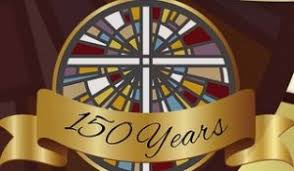



| CONGREGATION |
|  |
| Pastor | ||
| Officers | ||
| KIDS CORNER | ||
History | ||
| Links | ||
Cemetery | ||
The Lord's Prayer
  | The Lord's Prayer is an important pillar of every Christian religion. It is how Jesus asked us to pray in the Sermon on the Mount, and all Christians use this prayer. In the Middle Ages, most people could not read or write. Books, including the Bible, were copied by hand and were very expensive so, unlike today, reading wasn't something most people learned how to do. Ordinary people trusted their priests to help them earn God's favor. Priests in the Catholic Church told people about the Bible and explained faith, but the difference between what Jesus preached and the Bible said, and how the Catholic Church explained it's role changed over the centuries and began to reflect the political power of the church instead of the grace of God toward believers. Johannes Gutenberg invented the printing press in 1440. Many copies of a book like the Bible could be reproduced at once. It marked a big change, because now things that were written down could be shared much more easily. Some people say that the Reformation wouldn't have happened without the printing press. When Martin Luther nailed his 95 Theses to the door of the Wittenburg Church in 1517, copies of them were printed and shared all over Germany within weeks. Luther thought that all prayer, and especially the Lord's Prayer, was a cornerstone of true Christian faith. He did not believe that the church should stand between people and God, and felt that the Lord's Prayer, as given to us by Jesus, was proof of that. In his sermons and writings, Martin Luther explained the meaning of the Lord's Prayer in a new way. His ideas, published on printing presses and studied by scholars throughout Christendom, influenced not only Lutheran but also other Protestant reformers throughout Europe. The phrase "For Thine is the Kingdom and the power and the glory forever and ever" is a little bit controversial. It is called a doxology (hymn of praise). It is not included when some Christians say the Lord's Prayer. Biblical historians tell us that although the prayer that Jesus taught us didn't include those words, this phrase was always added when the earliest Christians prayed together. When some priests copied that part of the Bible (before printing presses), they included this ending as if it had been part of the original prayer from Jesus. Lutherans respect this ending as a tradition that goes back to the first followers of Jesus. We believe that it is good to acknowledge that God has all power, deserves all glory, and that His Kingdom will live forever. The traditional meaning of the word "Amen" is "Yea, Yea, it shall be so." When we end any prayer with "Amen" we are again saying that we trust in God to guide us in the right direction and give us what we need (which may not always be what we want!). |
Another lesson on the Lord's Prayer
| October 2014 | ||||
 |  |  |  | |
| In the Bible | Coloring Page* | Wordsearch* | Music | Craft Project |
| Top of Page | Kids Corner Home | Last Page Viewed | |
Copyright 2022 Concordia Lutheran Church 6637 80th Avenue North Glyndon MN 56547 | |||
| Site Index | Search the Website | Contact Us | |
